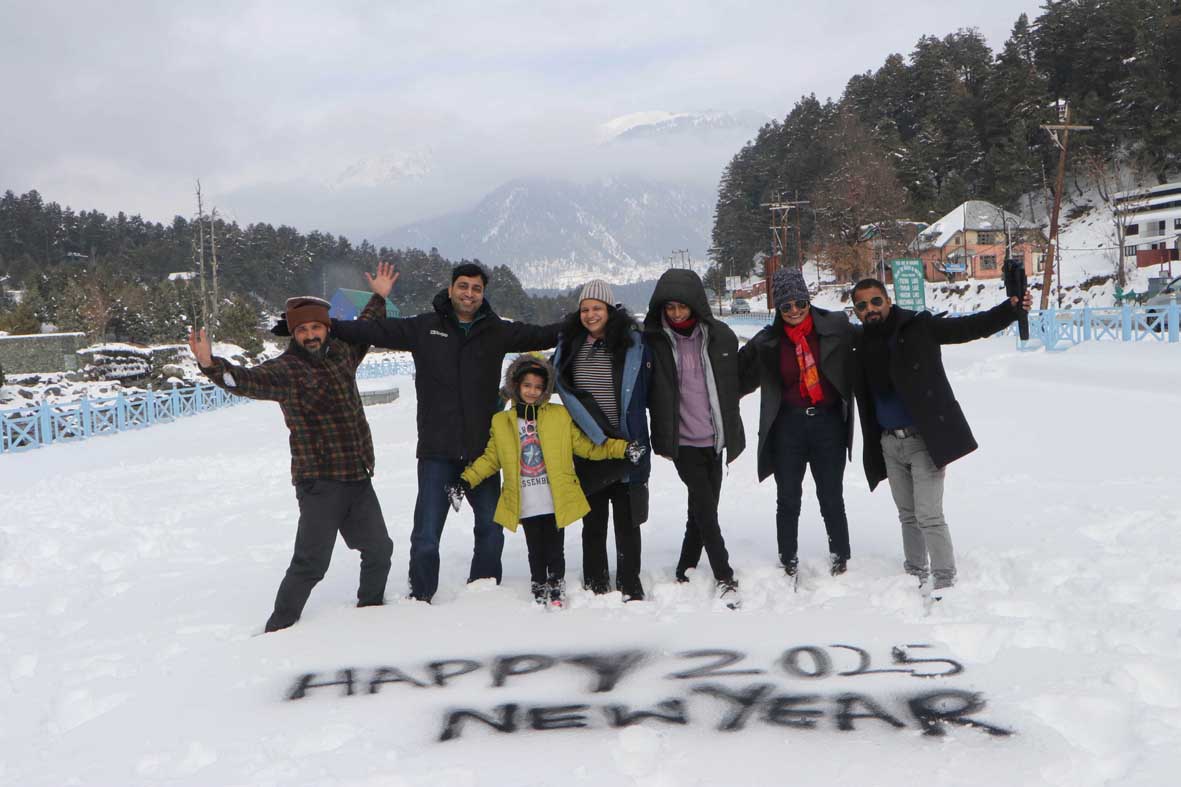SRINAGAR, Jan 1: The cold wave continues to intensify in the Kashmir Valley, with the Meteorological (MeT) office predicting light snowfall and rain across Jammu and Kashmir in the next 24 hours.
Join Daily Excelsior on WhatsApp for the Latest News
The MeT department reported, “Two western disturbances (WD) are set to pass over J&K in quick succession starting January 1. The first disturbance (January 1-2) will be weak, bringing generally cloudy skies with light snow in scattered areas during the evening and night of January 1 to the morning of January 2. The second disturbance (January 3-6) is expected to bring moderate weather, with light to moderate rainfall in the plains of Jammu and snow in most parts of J&K, peaking between January 4 and 6. From January 7 to 10, conditions are expected to clear up with dry weather.”
In light of the anticipated snowfall, the MeT Department has advised tourists, travelers, and transporters to prepare for sub-zero temperatures and icy roads, urging them to adhere to guidance from local authorities on traffic conditions. There is a possibility of heavy snowfall in isolated higher reaches on January 4 and 5.
On Wednesday, Srinagar reported a minimum temperature of -4.4°C, while Gulmarg recorded -8.8°C and Pahalgam -7.6°C. In Jammu, temperatures were milder, with the city at 8.4°C, Katra at 5.7°C, Batote at 2.5°C, Banihal at -1.3°C, and Bhaderwah at -0.4°C. Currently, Dal Lake and various other lakes across the Valley are experiencing partial freezing.
The intense 40-day cold period, which began on December 21, will last until January 30. Health officials have issued a warning about the risks posed by prolonged exposure to extreme cold, especially for children and the elderly, advising individuals to keep warm during the frigid days and nights.
An expert from the cardiology department at Government Medical College Srinagar highlighted that international research links winter mortality to blood vessel constriction, leading to heart attacks and heart failure. Respiratory issues coupled with narrowed blood vessels are significant contributors to the high number of winter-related deaths globally. (Agencies)


Leave a Reply